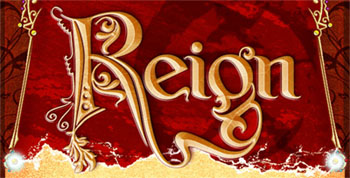 Greg Stolze’s Reign features a simple Wealth system. Characters, treasures, and resources are given Wealth ratings and all of these ratings are interchangeable. (A Wealth 3 treasure has as much value as a character with Wealth 3.)
Greg Stolze’s Reign features a simple Wealth system. Characters, treasures, and resources are given Wealth ratings and all of these ratings are interchangeable. (A Wealth 3 treasure has as much value as a character with Wealth 3.)
One feature of the system is that you can easily split a given Wealth into two portions of 1 size smaller. So if your character is Wealth 5 and they want to give half of everything they own to another character, the result would be that both characters would now be at Wealth 4.
I’ve created the Wealth Splitting Table, below, to create a convenient reference for breaking Wealth values down into larger chunks.
One immediate shortcoming of the system pretty much leaps off the page: If you want to split the loot from your most recent adventure evenly 6 ways… you can’t. The best you can do is split it 8 ways and then re-combine some of those Wealth packs to create a nearly-even split.
(For example, if you’ve got a Wealth 6 treasure you can split that into 8 packs of Wealth 3. You can take two of those Wealth 3 packs and combine them into a Wealth 4 pack; then do that again. That gives you four packs at Wealth 3 and two at Wealth 4.)
But, in general, I think this table should make these sorts of transactions easier to sort out.












Alternate thought: instead of a binary progression that *seems* to be recombinant, why not Fibonacci sequence or something else (Pickover’s 1, 11, 21, 1211, 111221, …)? My gut says that Fibonacci is probably the solution.
I read Wealth as a plot-level device rather than just cash. To use your system of divisions, I’d say that 1 generation of divisions is still Wealth – The Empress handing out duchies and reserves – but beyond that, it’s *just* cash. A Wealth 6 holding is divided amongst the 6 members of the company into 8 shares of Wealth 3, then reducing 2 of the shares to cash/actual treasure to split. I’d handle it as specific items that add dice to specific tasks, much as swords or magic does. Since I use a “We Owe” list in play, it helps level out inequalities IME… so I’d handle any errors in division that way
Justin, I’d be interested in your thoughts on how to apply such a system to D&D. I find the Wealth system to be interesting, but I’m having difficulty finding a way to shoehorn it into my favorite system. I’m guessing it requires a paradigm shift in my thinking, but I’m not making the leap myself.
Well, basically, it’s just a matter of setting wealth values for everything the PCs want to purchase. Common items would be Wealth 1 or Wealth 2 and you’d scale up from there.
Couple conceptual things to keep in mind:
(1) In this system, there’s treasure that falls below the “give a damn about it” threshold. If you loot a goblin with 1d6 gold pieces in his pocket, that’s basically Wealth 0 and worth nothing. (If the guy doing the looting is completely penniless, then you might let that minor looting translate into buying something at the local soup kitchen.)
To put it another way: You’re gaining 1d6 gp there; you’re spending 1d6 gp on a purchase somewhere else. The system abstracts all that and says it basically balances out.
(2) Starting around Wealth 2 or Wealth 3, the system assumes that the character is somehow investing their assets or have otherwise established a steady income stream.
This makes sense for a game that’s about running a company (and are relatively stationary in the game world). But if they’re not doing that for some reason, the abstraction of the system will probably stop making sense if you look at it too closely.
The real trick of it is that essentially every edition of D&D except for AD&D2 has used gold pieces as either an indirect or direct balancing mechanism. So the real challenge would be tweaking the system to support that.
My guess is that the easiest way to do that in 3E or 4E would be to basically say “PCs should generally have a Wealth level equal to their level” and then setting prices off of that. You’d probably need to experiment for a bit to figure out what the right distribution of significant hordes would be over the course of a level’s worth of XP. My assumption would be that this would be very sensitive to circumstance (if you run into a Wealth 5 treasure before you pick-up a Wealth 6 magic item it’s useless; after the Wealth 6 magic item it’s suddenly useful).
You might consider a ‘CR-math’ style for the wealth table. Instead of doubling every level, double every two levels. This makes the ratio between two consecutive levels sqrt(2), which means that three levels separation is 2*sqrt(2), or close enough to 3 (2.828…) that I’m not going to worry about it in a system this abstract.
It is now trivial to divide (or multiply) by 2, 3, 4, 6, 8, 12. 9 fails (looks just like 8, six levels difference) but I’m not called on to split treasure nine ways all that often.